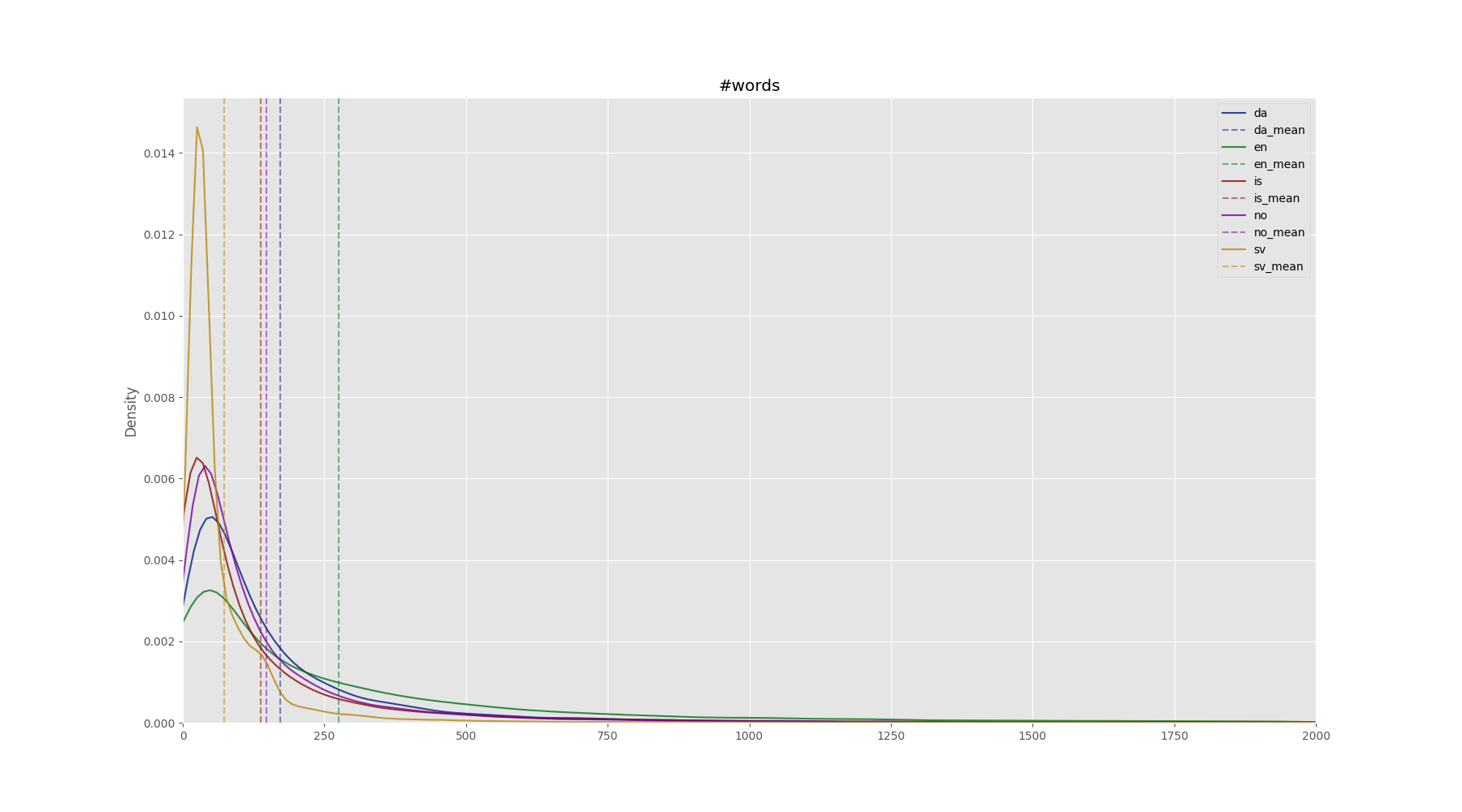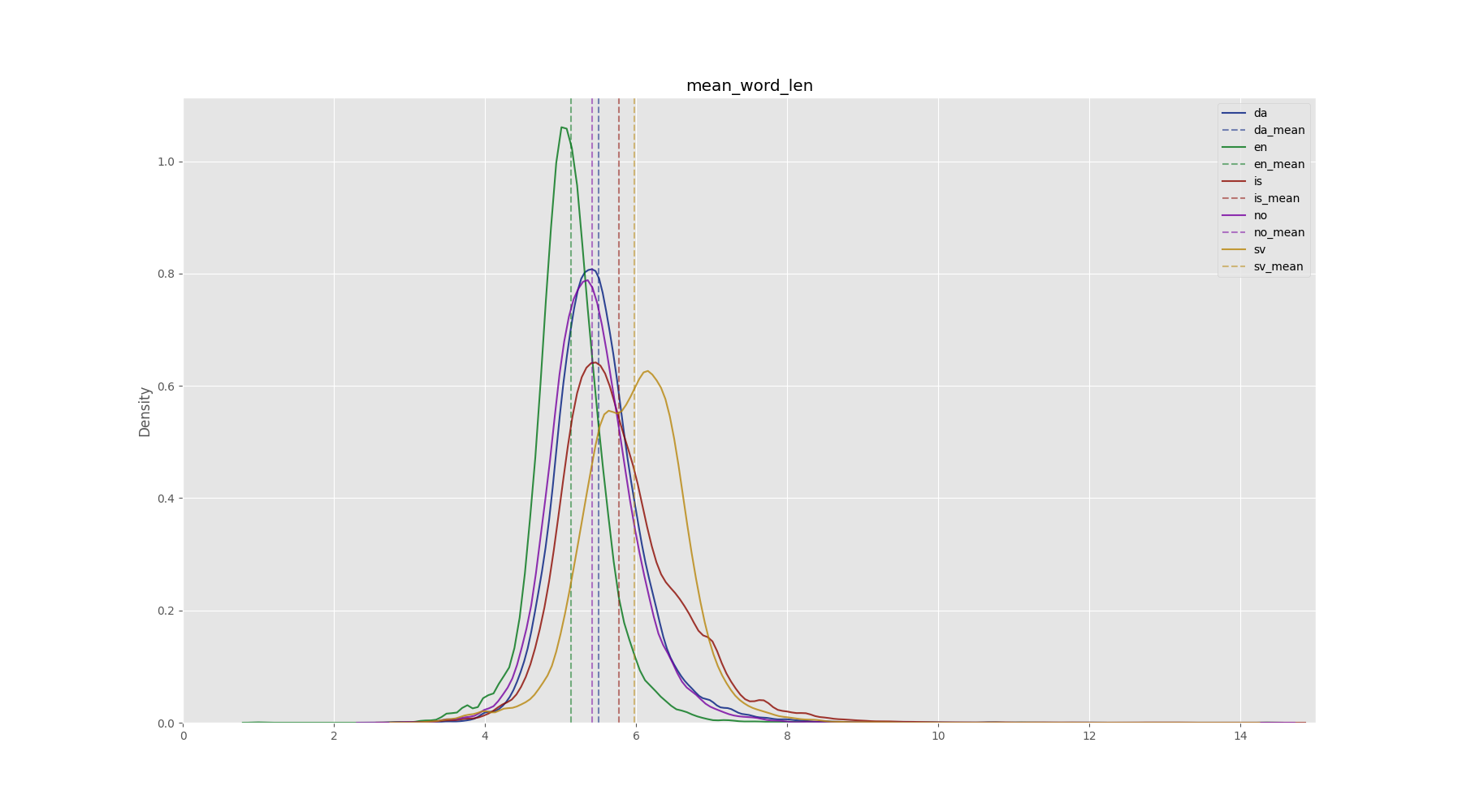This repository provides code to execute quality filtering to textual data. It primarily does 3 things:
- Preprocess documents to a standard format
- Filter documents of poor textual quality
- Add metrics to the documents
The bash script ./exec_filtering.sh has 3 variables to select input file, output file, and config (yaml) file. The order of filters in the config file determines the order of filter execution. See example_config.yaml for a config that runs all filters.
It then calls filter_main.py with these arguments, which parses the config file and creates a list of filters that should be applied.
The file read_work_write_parallel.py is used to stream input json lines, work on these lines in parallel, and stream out processed/filtered lines. So, 2 threads will be handling I/O, and NUM_PROCESSING_WORKERS processes the lines, all simultaneously.
The filter names in the yaml-config directly corresponds to a method name in the Document class in Document.py, which iterates over these names and calls the functions.
If any filter returns False, this means that the document does not meet the filter criteria, and this json line is then not written to the output file.
Each input file will generate a corresponding jsonl file with the texts, urls, keep flag, filter list, and metrics. Additionally, a filtering_log text file with the python program output is created for each file. This log will include a table of statistics of how many documents got removed for each filter.
./clean_dirs.sh contains 3 parameters:
- CONFIG_BASE_PATH: The path to a directory holding all the config files
- ROOT_IN: The absolute path to the source data directory, e.g.
/data/nordic_pile/jsonl_train_format/original - ROOT_OUT: The absolute path to the destination data directory, e.g.
/data/nordic_pile/jsonl_train_format/cleaned
It recursively finds all .jsonl files within ROOT_IN and finds the correct config file in CONFIG_BASE_PATH through the mapping defined in filter_main.py. Then the filters specified in this config file are used to clean the given document and writes and identical directory/file subtree in ROOT_OUT.
Remove documents that are shorter than 5 characters, and skip evaluating any other filters since they can crash on empty documents. Normalization + Metrics are still done.
This filter is always used and is not required to add to the config file.
Remove documents that are not greedily predicted, using FastText, as one of the supported languages. (en, sv, no, da, is)
Remove documents that are shorter than 50 characters.
Remove documents that have an average word length shorter than 2 or longer than 10 characters.
Remove documents that have a too small number of words or characters per non-empty line.
Remove documents with less than 2 common stop words present, or a too low fraction of stop words.
Remove documents where less than 80% of the words contain no alphabetic character
Remove documents with a symbol-to-word ratio greater than 0.1, for hashtags and ellipsis respectively.
Remove documents where more than 90% of the lines start with a bullet point, and such lines occur at least 3 times.
Remove documents where more than 30% of lines end with an ellipsis, and such lines occur at least 3 times.
Does nothing if no url is present. Otherwise, remove documents if any of these are true:
- The url is malformed.
- The domain is blacklisted.
- The file extension in the url is blacklisted.
- The entire url is blacklisted.
In the directory blacklisted_urls, there are three subdirectories: domains, extensions, and full_urls. Each of these contain any number of .txt files that are loaded at runtime, where each line represents a blacklisted domain, extension, or url.
Remove documents that are repetitive in terms of lines, paragraphs, or n-grams (we do word-level n-grams instead of BPE-tokens, with some adjusted thresholds). See Gopher, pages 40-41.
Remove documents that are repetitive in terms of character or word n-grams. See BigScience repo.
Remove documents that have a too high ratio of dirty words, see smut_words.txt and smutdetector.py for the list of naughty words along with their respective weights. Should probably only be used for commoncrawl-based corpora (since those are the datasets with the most pornographic content) to avoid incorporating a bias in our datasets.
- Whitespace normalization
- Unicode punctuation
- Remove non-printing characters, e.g. weird unicode (Not Used)
- Unicode Normalization (NFC)
Number of characters in the document.
Number of bytes in the document.
Number of words in the document.
Number of sentences in the document
The language identified in the document.
The 128-bit md5 hash as a hexadecimal string.
- Optimize to avoid precomputing stuff that is not needed if some filters are disabled
Mean_word_length:
I took literaturbanken, which should be high quality books. And calculated the mean word length of each book. (I split it using the regex you showed) These are the metrics from the resulting list: Min=3.7067423704755145, Max=6.11333714939897, Mean=4.831033042585691
Stopwords:
The most common words in the first 10 000 samples in mc4
is [('að', 169055), ('og', 168194), ('í', 140468), ('á', 109411), ('er', 84730), ('sem', 75381), ('til', 53967), ('um', 45702), ('við', 44658), ('með', 35876), ('fyrir', 32168), ('ekki', 31090), ('en', 29595), ('-', 29462), ('var', 26606), ('af', 25903), ('það', 25325), ('því', 22712), ('eru', 21775), ('frá', 18686), ('ég', 16546), ('eða', 15283), ('hefur', 15239), ('hann', 14566), ('verið', 13032), ('hafa', 12637), ('eftir', 12544), ('þar', 12255), ('þá', 12199), ('|', 11846)] (edited)
no [('og', 152883), ('i', 130176), ('er', 93674), ('på', 76581), ('av', 73150), ('for', 72289), ('til', 69597), ('som', 66086), ('å', 65025), ('en', 63197), ('med', 59517), ('det', 57246), ('har', 45568), ('at', 40883), ('-', 33170), ('du', 30620), ('ikke', 28731), ('de', 28314), ('fra', 27157), ('om', 26878), ('kan', 25885), ('et', 25286), ('den', 23658), ('Det', 19789), ('jeg', 19777), ('var', 17588), ('vi', 16976), ('eller', 16088), ('så', 14820), ('skal', 13604)]
sv [('och', 121981), ('att', 89883), ('i', 89545), ('är', 62882), ('på', 62407), ('som', 62028), ('en', 58470), ('för', 54258), ('av', 49795), ('det', 49610), ('med', 49172), ('till', 39418), ('har', 34755), ('om', 27256), ('jag', 26313), ('inte', 25994), ('den', 25857), ('du', 25175), ('ett', 24660), ('-', 24231), ('kan', 22452), ('de', 21331), ('så', 20385), ('från', 17223), ('eller', 15693), ('vi', 15666), ('Det', 15552), ('man', 14845), ('var', 13693), ('men', 11836)]
da [('og', 140309), ('i', 118254), ('at', 97744), ('er', 94140), ('til', 82428), ('af', 74182), ('en', 68592), ('på', 64907), ('for', 56941), ('med', 55410), ('det', 46946), ('der', 40789), ('som', 36961), ('har', 36750), ('den', 36552), ('de', 35014), ('-', 33800), ('kan', 33375), ('du', 32525), ('et', 30255), ('ikke', 28934), ('fra', 25619), ('om', 23264), ('så', 19881), ('eller', 18062), ('Det', 16634), ('jeg', 16169), ('skal', 15956), ('vi', 15667), ('var', 14940)]
["da", "en", "is", "no", "sv"] All words were made to lower case before analysis.
da: [('i', 288300), ('og', 227849), ('af', 150054), ('en', 124326), ('er', 103208), ('til', 102407), ('at', 93941), ('den', 93776), ('som', 81743), ('på', 80492)]
en: [('the', 539347), ('of', 257585), ('and', 223100), ('in', 221692), ('a', 157424), ('to', 157248), ('was', 95710), ('is', 70985), ('for', 64988), ('on', 64390)]
is: [('og', 199239), ('í', 177258), ('að', 115670), ('á', 109302), ('er', 99268), ('sem', 94747), ('var', 71627), ('til', 58949), ('en', 42544), ('hann', 41655)]
no: [('i', 267883), ('og', 194480), ('av', 113947), ('som', 103077), ('en', 99020), ('er', 91134), ('til', 84642), ('på', 77803), ('ble', 68084), ('for', 65009)]
sv: [('i', 111279), ('och', 77116), ('är', 70937), ('av', 47718), ('en', 46064), ('som', 39122), ('den', 39020), ('med', 25962), ('på', 18707), ('till', 18256)]

